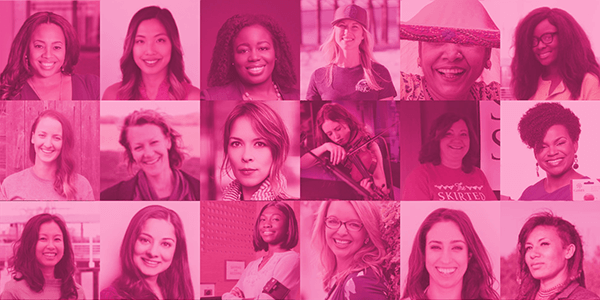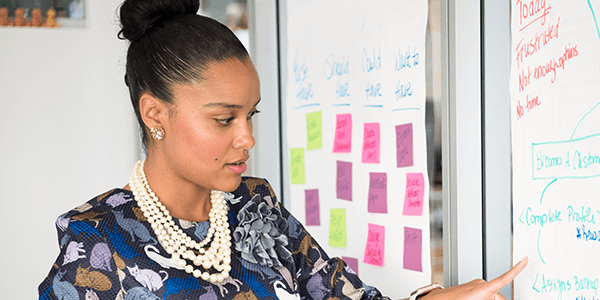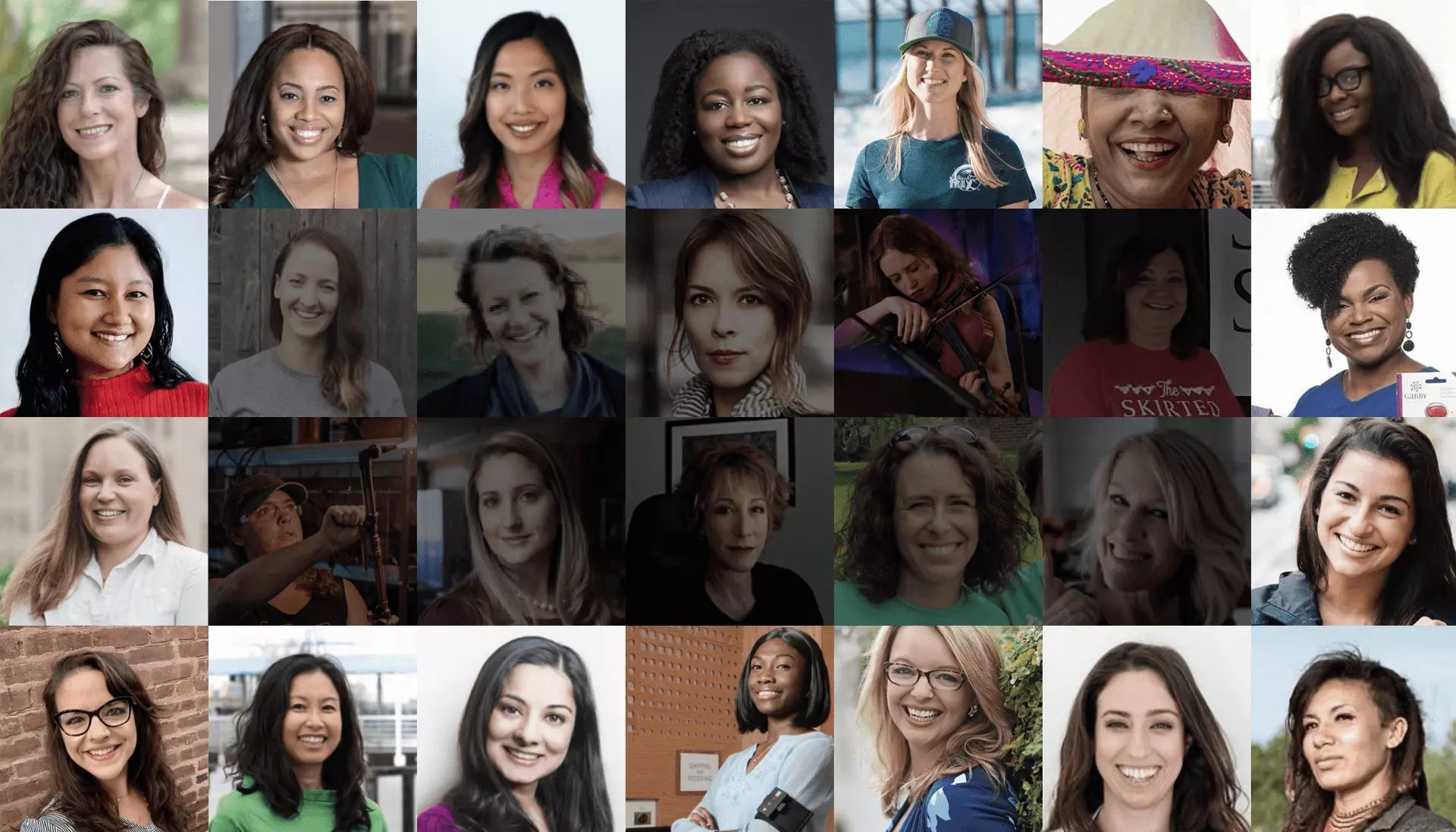

July 21, 2022
June 2022 Amber Grant awarded to The Sweetest Bean

The Sweetest Bean Vanilla LLC
Woman Entrepreneur:
Shana Marie Gilbert & Laura Lind
Her Website:
https://www.thesweetestbean.com/
We’re excited to announce the $10,000 June Amber Grant recipient. Congratulations to Shana Marie Gilbert and Laura Lind, Co-Founders of The Sweetest Bean. They are the June qualifier for the 2022 year-end Amber Grant ($25,000).
Recently, WomensNet Advisory Board member Marcia Layton Turner sat down with Shana and Laura for an exclusive interview. You can listen to their conversation and view the transcript below.
Video Transcript
Marcia: Hi, everyone. Welcome to a conversation with our Amber Grant winner for June, 2022. Today we’re speaking with Shana Gilbert and Laura Lind, who are the co-founders of Denver-based The Sweetest Bean (our Amber Grant winner).
I’m Marcia Layton Turner, and I’m a WomensNet Advisory Board member. And I have the pleasure of meeting all of our great winners. So Shana and Laura, thank you so much for taking some time to chat with me.
Laura: Thank you for having us. Absolutely. We are so excited.
Marcia: Well, why don’t you tell everyone about The Sweetest Bean [and] how you got started.
Shana: Okay. Well, the story goes back a little bit, but just to give you the shortened version… I took off to Uganda, Africa in 2005 and I was a documentarian. I met a group of street kids, 65 of ’em. They kind of changed my whole life.
And while I was there, one of the street kids died. I ended up adopting her little girl that she left behind. And from there I stayed — I just moved in for seven years and we started businesses, all kinds. And Laura is my childhood friend. So she would help help me do fundraisers and encourage me all those years through it, including what businesses we had: piggeries, taxicabs, hair salon, everything…
But we landed on vanilla. It’s a tough industry because it’s generational. So, people pass it down. Most of the spice industry is like third and fourth generation. And so that’s where we really got started — I was already there learning how to do it. And I came to Laura and said, ‘listen, I need to have the American side built up.’ So we are the buyers and the supplier, and we don’t have to deal with the outside chaos of the big industries. And we wanna start something small and grow it from there. So that’s kind of where we got started.
Laura: Yeah, absolutely. And to be honest, I love to cook and bake and all of that. And I really had no idea what went into vanilla. Just even from the get go: the green bean grows out of an orchid flower and then takes nine months to grow… and then you have to cure it.
So I learned very quickly why vanilla is very expensive. To sort of have a team in place, it was a great time for me to jump into something new. I’d always been an entrepreneur. And this was extremely intriguing to me and we work really well together. Shana’s kind of the dreamer and and storyteller. And I do a lot of the sales. Vanilla is, like she said, not something you just jump into. The fact that we already had a team in Africa that allowed us to cure the vanilla and have it sent straight to us is pretty remarkable.
Marcia: Shana, you mentioned that the business is generational. Tell me a little bit more about that.
Shana: So vanilla is the second most expensive spice in the world next to saffron. And the people who supply it have grown up doing it their whole lives and the people who buy it are also very savvy, understanding exactly where the best product is grown and who to actually work with. It’s a corrupt business in that there’s not a lot of industry in some of these very low income countries, low economies like Uganda. Vanilla’s probably one of the bigger industries there as far as having an international market. So when you have a small supply of something like vanilla —because it’s so hard to grow — all the buyers are coming in from every country at the same time and they know who their suppliers are. And it’s gone quickly. So I started while I was living there working with some bigger companies around the world who had inherited their companies from their grandfather’s great grandfathers and their families had always been in it.
And that’s how I learned the business. It was just slowly. And I thought, ‘how are we gonna do this? We can’t do this.’ And my team there, we did it for years before we started in the US. And we were the supplier. So we learned how to make a really good product. I’ll show it to you. So you have some vanilla right here. You see how it’s a little glistening — I don’t know if you can see that in light — it’s very oily, lots of seeds in there. And in order for vanilla to look like this, it has to be cured in the very hot sun and sweat in these wool blankets for months on end. And it’s very complicated to learn. You can’t Google it. You have to learn it from someone who’s always done it.
So it’s a tough product you to jump into. And I said, ‘Laura, listen, I already have the whole team. I’ve got all the vanilla we need. Now, we just need to build the company here.’ And she has done these remarkable things, selling to breweries, ice cream factories, distilleries, and finding markets that are kind of offbeat. And building relationships with them. That’s what we’ve been doing.
Marcia: So now that you’ve won, how are you going to use the $10,000 to grow this business?
Laura: Well, it’s so crazy. In the last two years, we have just really skyrocketed. I’ve spent a lot of time reaching out to customers, building relationships, figuring out markets that really love sort of direct buying.
A lot of the breweries and small bakers and ice cream companies… they’re used to going through brokers. And so they love that we are direct and there’s no middle man. And as Shana alluded to, it’s a really corrupt industry too. So we get asked often, you know, “do you have any children working for you,” this and that…There’s a lot of child labor in places like Madagascar that are in the vanilla industry. So it’s important to us that we’re not that, obviously. We have a group of adults that are making a stable income from us.
So with the $10,000, it’ll sustain some of our team. It will help us purchase a little bit more equipment for production of vanilla extract. It’ll also help us buy almost about a hundred additional pounds of vanilla. So we’re very excited to put it direct to production.
Marcia: So…a hundred pounds of vanilla beans. How many gallons or quarts?
Laura: Yeah. That’s a good question.
Shana: Well, it’s 100 of these. So imagine a bean in a spice store costs anywhere between $6 and $9. We wanna do 100 of these. So how many gallons is that? 80 gallons?
Laura: Yeah. It’ll produce roughly 80 to a hundred gallons of vanilla extract. So it really does skyrocket us a little bit and you know, it’s hard to get new customers when you don’t have the supply on hand and the equipment on hand. So it really, really will help a ton.
Shana: Yeah. Thank you. It’s such a dream.
Marcia: As for vanilla harvesting — is it a seasonal business? Or year-round?
Shana: There’s two seasons a year in Uganda and that’s what makes Uganda special. Every other country has one season. So if you buy beans online, for example, you could be getting a bean that’s a year old already. But we have two harvests a year and it’s very complicated. You have to hand pollinate every single flower and it only opens for one hour and then it dries up and falls on the ground.
And it all comes from the fact that the queen of England tried to bring the vines from Mexico when they colonized Africa and they couldn’t bring the bees with them. So the farmers hand pollinate. And if you wonder, then once it’s hand pollinated nine months, it’s just as long to have a human being as it is to grow one bean. Nine months to grow it. And then three more months curing it. And so after a year, right, we finally get it. And then it’s precious.
Then we turn it into something that you can make: croissants and creme brulee, etc. We also do powder, where we grind the whole bean. And there’s no sugar. It’s just the bean ground up. A lot of chefs require powder. And this is our packaging on the extract. And we put a bean in every bottle. People really love that idea. It keeps getting stronger in the cupboard.
Laura: Yeah. It definitely takes a village to get into the vanilla industry. This is not for the faint of heart for sure.
Marcia: If your short-term plan is to sort of shore up your infrastructure with new equipment, 5-10 years out, where do you expect the business to be? What are your long term plans?
Shana: I wrote down some notes because I didn’t wanna mess that one up. The biggest thing is in Uganda, our dream would be to have our own place in Uganda. We rent what we call the factory right now. Our crew does. And so it’d be really great to have our own spot and to be able to kind of develop, but that’ll take some time, of course.
Laura: And then kind of within the next year, we’d really love to be able to find a production facility here that fits our needs size-wise…since we are growing and be able to kind of get ahead on inventory. It’s just been harder than we thought to find the right commercial space, but I think it’s doable. I think we’re in a place where we’re close. We’re just about there, but that would be a short term goal for sure. And then the more we buy, the more we’re able to continue growing our team in Africa too.
Shana: We have anywhere between 12 and 30 people who have jobs, who are employed. Most of them women. And when you think about the fact that they’re normally the breadwinners of their family, sometimes they’re the only parent. They then put their own children through school, pay their own medical bills, their own school fees, that sort of thing. For me it’s economy over charity and building an economy there. I did charity. I did foreign aid work for about a decade in Uganda. It doesn’t work. It’s not sustainable. And so providing jobs, that’s our dream.
Marcia: So how did you originally hear about the Amber Grant?
Shana: Oh, well Laura gave me an assignment for the summer. She said, ‘why don’t you start grant writing, start with women’s grants.’ And you were the first one I found; it popped up. The deadline was like the next day, or two days later… I had just a couple days to figure it out and I just went for it.
Laura: She’s a writer!
Shana: And somehow it worked. So thank you.
Marcia: Do you have any advice for women business owners who are maybe just getting started, or who are a little bit earlier in their journey? What have you learned that you might recommend to them?
Laura: You know, it’s funny. Everybody starts a business with a passion typically, and there’s a reason they’re starting it. And often times passion doesn’t equate to sort of success in business. And you see that often. I think for me that I’ve been an entrepreneur forever, and it’s not easy to do. You have to just be really patient. I think for us, the motto that we’ve really held true to and sometimes frustrates us too, is just slow and steady wins the race.
It’s easy to have big ideas and to get ahead, and then you sometimes have to reel it back in. So our advice would be just to stick to your original vision.
Shana: We didn’t start with a big business loan. We started with literally nothing. I started just making: I brought the vanilla with me and we just started in my basement, like businesses do, until we were able to get out of the basement. So no big loans, nothing that stressed us out.
And I do have one more piece of advice. I start things. And one time I moved to LA to make my movie. I was making films at the time, and I met this lady and she said to me, “when you start things, there’s only two outcomes. Either one, you start it and you fail, but you don’t spend the rest of your life wondering if you should have done it. Or two, you start it and it works. And everything’s awesome. And it’s successful. And either way you don’t spend the rest of your life saying, ‘should I have done that?’” So that’s, that’s kind of Laura and I’s thing our whole life, when we had an idea, we just went for it.
Marcia: That’s very brave. And I commend you for sticking with it, not knowing how this was going to go.
Laura: No, we really didn’t. We really didn’t. And to some degree too, starting a business during the pandemic kind of helped us. It was kind of miraculous that things came together for us.
Marcia: Well, thank you so much for taking a few minutes to chat, Laura and Shana, and congratulations again on being our June Amber Grant winner.


















